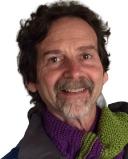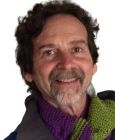Therapy
Becker, Rank, and Existential Psychotherapy
An intimate trio.
Posted May 22, 2023 Reviewed by Michelle Quirk
Key points
- We must understand our relationship to existence, not only to our parents, culture, cognition, or physiology.
- Life-enhancing anxiety is the ability to live with and make the best of the depth and mystery of existence.
- A key result of life-enhancing anxiety is awe-based consciousness—a sense of adventure toward all living.
If we want to understand the therapeutic insights of Becker and Rank, then we have to understand our relationship to existence, not only to physiology, cognition, or even parents. We need to understand our plunge into a vast, unknown sea, and our attempts to negotiate that plunge. In a nutshell, we need to understand what Rank (1924) calls our “trauma of birth,” or what I call our “drama of birth” because I don’t think it's all trauma, as it includes elements of wonder and discovery along with shock and disorientation. In short, we need to be cognizant of our radical shift from relative nonbeing and unity to sudden, abrupt being and pandemonium!—along with the groundlessness and helplessness that ensues from that.
How We Are "Met" at Birth
We also need to understand the whole problem of how we are “met” at birth—both by our caretakers and the culture that surrounds them. For the crucial question is this: Are we met with supportiveness and understanding toward that radical “otherness” of the world we come into (including within our own inner world) or are we met with comparatively fear-based presumption, suspiciousness, and devaluation as the guiding principle? This is, in essence, the whole project of existential and existential-integrative (EI) therapy—to help people address and form new internalizations toward the helplessness and groundlessness, the primal trauma of their wounds. I call the aim of this project “Life-Enhancing Anxiety” (Schneider, 2023)—the ability to “live with and make the best of the depth and mystery of existence.”
To elaborate, EI therapy is one way to understand and coordinate a variety of bonafide approaches within an existential or experiential framework. The main aim is to help the client find “ground within the groundlessness” of their struggle, whether that struggle is depression, anxiety, addiction, isolation, narcissism, or other so-called psychopathologies. The cultivation of presence or the holding and illuminating of that which is palpably significant within the client and between client and therapist is key, as is the client’s desire and capacity for change. The chief and ongoing question is “How is the client presently living, and how are they willing to live?”
Passive and Active Mirroring
This often implicit question and the pursuit of ground within groundlessness is fostered by how the therapist “holds” the client (which serves as a model for the client’s cultivation of presence) as well as providing an active or passive “mirror” to the client to help him/her “see” how he/she both desires to live and stops themselves from living. A passive mirror is characterized by the therapist's attention to areas of significance, not only in the words clients utter but also in the way they convey those words, their affect, facial expressions, and other gestures that may convey the fuller contexts for their words. Passive mirroring also entails paraphrases and reflections of what the therapist "hears" in clients' narratives. Active mirroring is the more intimate and engaged sharing of therapists' experience with their clients, in the service of deepening clients' exploration of given concerns.
Both active and passive mirroring is one of the subtler arts of EI and other existential and psychodynamic orientations that requires deft skill and clinical judgment. After enough revisitations (repetitions) of this mirroring process, and as clients get a deeper sense of their inner battles (i.e., the part of themselves that's attempting to break through and free themselves and the self-protective part that attempts to block and squelch that freeing process), clients are increasingly in a position to find their “counter-will,” as Rank put it, to overcome and transform the blocks.
Awe-Based Consciousness
Optimally, a result of this overcoming is a renewed relationship to existence where one has access to a much greater range of thoughts, feelings, and sensations, and ultimately perhaps a whole new orientation toward life beyond the attainment of particular goals or meanings. I call this holistic, spiritual sensibility "awe-based." By awe-based, I mean the ability to engage life with humility and wonder (or sense of adventure) toward all existence. I also mean the capacity to optimize life-enhancing anxiety or the capacity to live with and make the best of the depth and mystery of existence, the paradoxes of existence.
This experience of our smallness and fragility and yet boldness and ability to transcend, and to do so creatively, is what Becker, following Kierkegaard and Rank, meant by “maturity.” In his own words Becker (1973) notes
If there is tragic limitation in life, there is also possibility. What we call maturity is the ability to see the two in some kind of balance in which we can fit creatively.
Becker (1973) also noted
Whatever is achieved must be achieved from within the subjective energies of creatures, without deadening, with full exercise of passion, of vision, of pain, of fear, and of sorrow. (p. 284)
References
Note: This article is adapted from an invited talk for the online symposium—“Becker, Rank, and Psychotherapy” on February 10, 2023. The symposium, which also included Claude Barbre and Sheldon Solomon, was sponsored by the Chicago Center for Psychoanalysis and Psychotherapy and the Ernest Becker Foundation, with support from the Existential-Humanistic Institute. There will be an online conference on Rank on November 4–5, 2023, sponsored by the Existential-Humanistic Institute called "Unleashing Otto Rank: From Interpretation to Experience."
Becker, E. (1973). The Denial of Death. Free Press.
Rank, O. (1924/1993). The Trauma of Birth. Dover Publications.
Schneider, K. (2023). Life-enhancing Anxiety: Key to a Sane World. University Professors Press.


